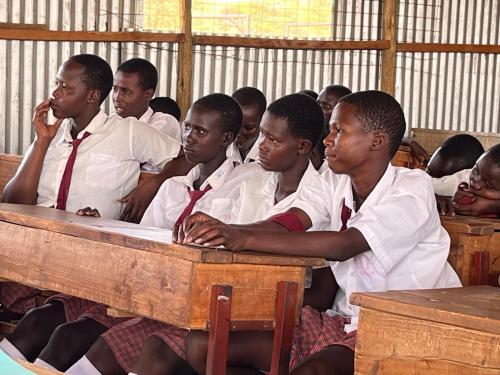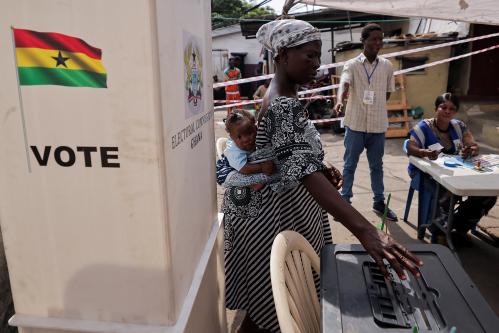NIGERIAN MINIMUM WAGE BILL ADVANCES, AND PRESIDENT BUHARI SUSPENDS TOP JUDGE
On Tuesday, Nigeria’s House of Representatives approved legislation, which was proposed last week, increasing the country’s minimum wage by 50 percent. Organized labor groups praised the advancement of the measure, saying that the move renewed hope that lawmakers were committed to promoting the welfare of Nigerians. The labor groups, including the Association of Senior Civil Servants of Nigeria and the Trade Union Congress, have now urged continued momentum on the proposal, which still requires the consent of the Senate and President Muhammadu Buhari before becoming law.
In other Nigerian news, President Buhari suspended the country’s top judge Walter Onnoghen last Friday and replaced him with acting Chief Justice Ibrahim Tanko Muhammed. The move comes just weeks before a close presidential election, in which the judiciary could play an important role. The suspension has provoked the Nigerian Bar Association to conduct a two-day boycott of all courts in Nigeria, holding protests in Abuja and southeast Enugu state.
Critics have called the suspension tyrannical and unconstitutional. Buhari dismissed these criticisms on Twitter, stating that his decision to suspend Onnoghen was based on security agencies’ findings of “suspicious transactions running into millions of dollars to the Chief Justice of Nigeria’s personal accounts, all undeclared or improperly declared as required by law.”
ETHIOPIA TRIPLES AIRPORT SIZE
On Sunday, Ethiopia’s Prime Minister Abiy Ahmed inaugurated the terminal expansion for Addis Ababa Bole International Airport, the main hub for Ethiopian Airlines. The expansion triples yearly passenger capacity from its current 7 million to 22 million passengers annually. The $363 million expansion project was funded and built by China.
This airport expansion in the capital is one step of many in Ethiopia’s ongoing efforts to become Africa’s leading aviation hub. Last year, Addis Ababa surpassed Dubai as the leading transfer hub for long-haul travel to sub-Saharan Africa. Ethiopian Airlines is also now the continent’s largest airline by fleet size, passenger numbers, revenue, and profit.
While the airport is set to be a success, some risks may loom in the horizon. On February 1, just a few days after the airport’s inauguration, Prime Minister Abiy expressed concern about the economy‘s ability to generate enough output to pay off state loans for ambitious infrastructure projects. The statement was made to lawmakers in Addis Ababa. Ethiopia has rescheduled 60 percent of its loan repayments.
ARRESTS OF PROTESTeRS IN CAMEROON
On Monday, government authorities arrested opposition leader Maurice Kamto, president of the Cameroon Renaissance Movement (CRM), and Alain Fogue, the treasurer of the CRM, for leading protests last weekend against President Paul Biya. During the demonstrations, security forces used live ammunition to disperse protesters, wounding seven, and arrested 117 protesters in several towns.
Kamto has been mobilizing dissent against President Biya since last October, when he lost what he says was a fraudulent presidential election. While Kamto and his party claim to have won the election, which was marred by electoral irregularities, official figures showed him winning only 14 percent of the vote, in second place to Biya. Biya, who has ruled Cameroon continuously for 36 years, won his seventh term in office.
The Brookings Institution is committed to quality, independence, and impact.
We are supported by a diverse array of funders. In line with our values and policies, each Brookings publication represents the sole views of its author(s).





Commentary
Africa in the news: Nigerian minimum wage bill advances, Ethiopia triples airport size, and Cameroon makes arrests
February 2, 2019